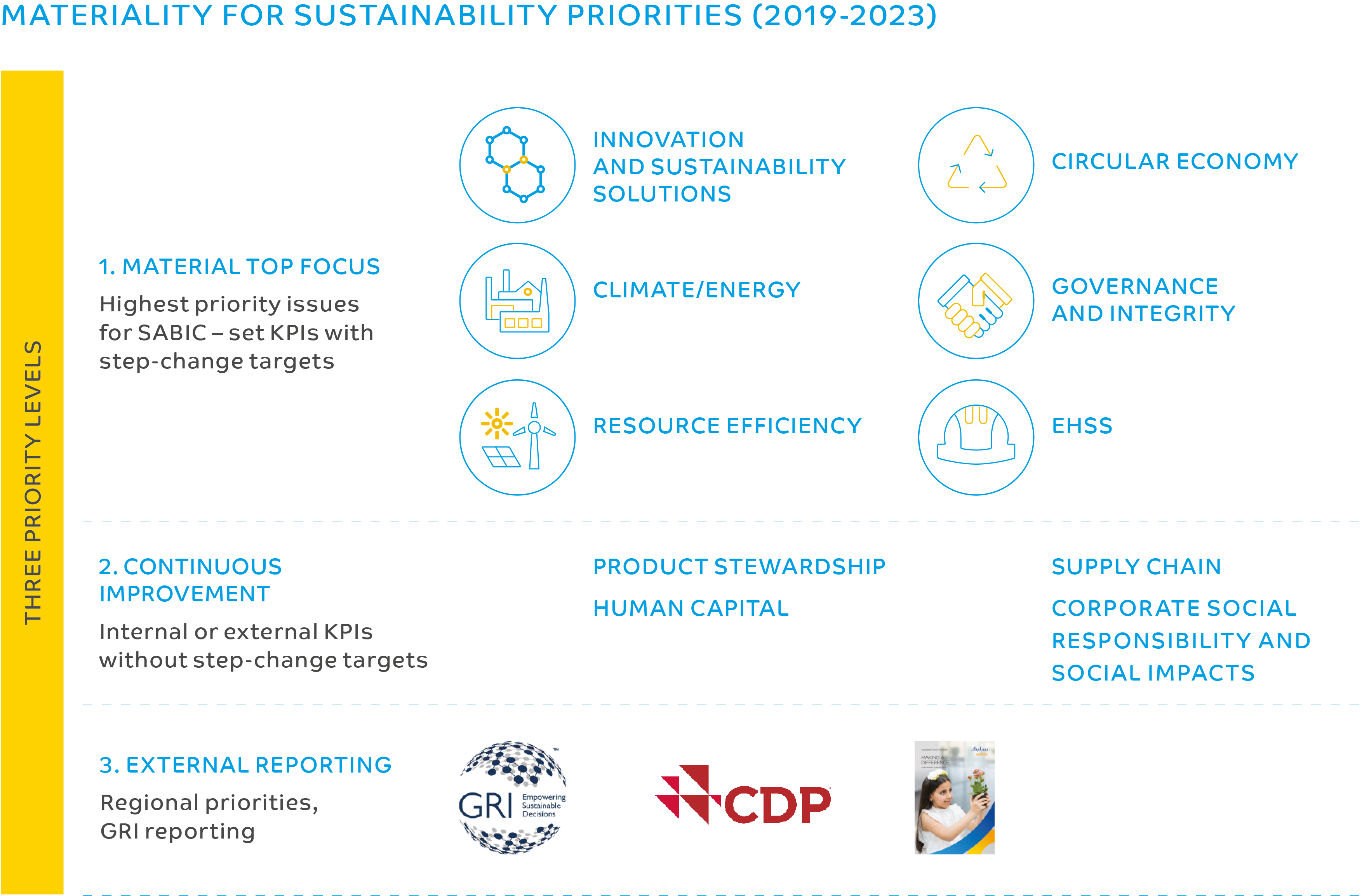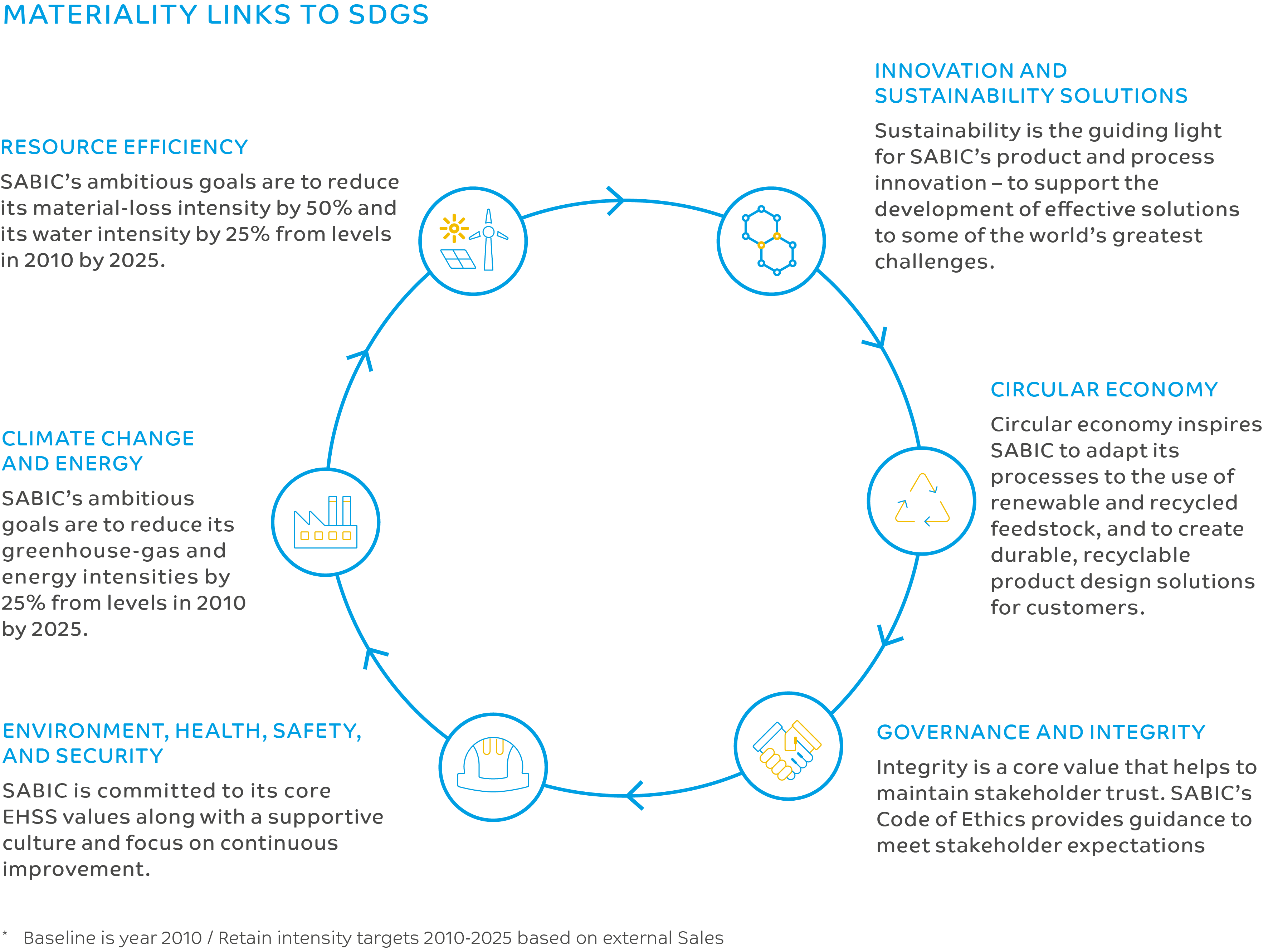Materiality
SABIC’s sustainability strategy is guided by a materiality analysis to ensure that resources target the most important issues for our stakeholders and business success.
This year, we undertook a comprehensive refresh of our 2013 materiality process, applying an evidence-based approach to determine the most relevant priorities for SABIC to tackle in the next five years.
2018 MATERIALITY REFRESH
The materiality refresh undertaken this year built upon the 2013 qualitative approach by using evidence to challenge historical priorities. To do this, we took a broad look at internal and external stakeholder needs, major trends, benchmarks, and relative business impacts to determine the most relevant priorities for SABIC in the next five years.
MATERIALITY CHANGES FOR 2019
The materiality results reflect increasing pressure and opportunities in regard to climate and circular economy, and these areas are expected to drive transformational shifts in the chemical industry. The underlying key performance indicators will target opportunities in areas such as renewable energy and circular plastics while reducing impacts through waste and flaring. The more targeted KPIs resulting from the process will drive our sustainability forward in the coming years.
A Steering Committee champion will lead the execution of each materiality priority, developing the step-change goals with strong protocols, data collection, and tracking. The materiality priorities will flow down to all businesses and functions for incorporation into strategies.

SUSTAINABLE DEVELOPMENT GOALS ROADMAP
The United Nations in 2015 adopted the Sustainable Development Goals (SDGs): 17 goals, underlined by 169 targets, to be met by 2030. Together, they form the blueprint to address the world’s shared challenges.
SABIC’s SDG journey began in 2016, and we have embraced the goals as fundamental to our continued success and identified the 10 SDGs most connected to our business where we can make the greatest impact:

Again this year, we reaffirmed our UNGC commitment and identified the Sustainable Development Goals most relevant to our business where we can have the most impact on important global issues.
